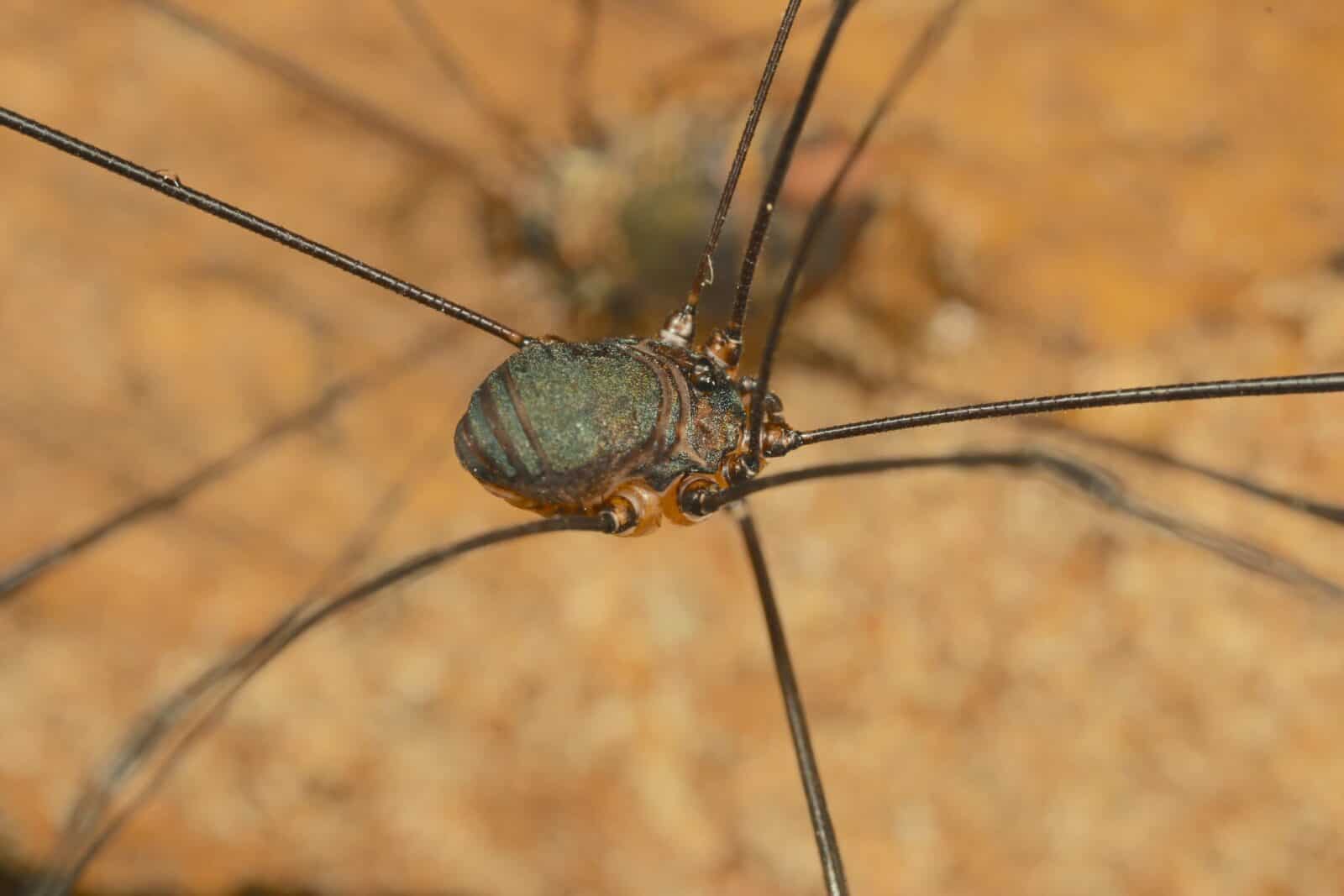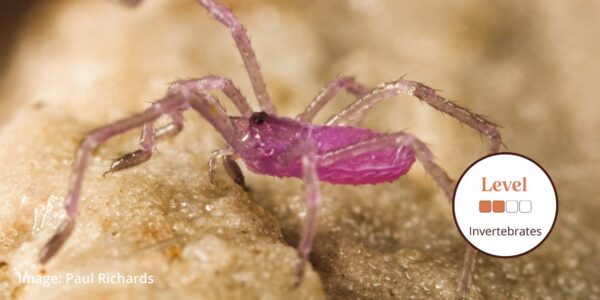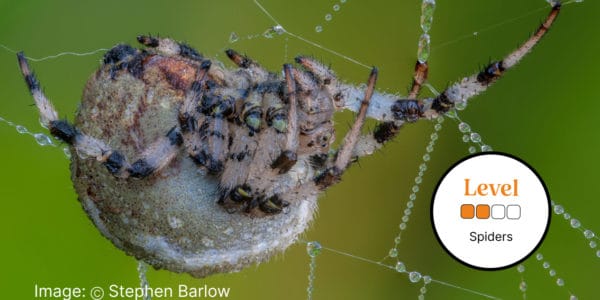This beginner course will introduce the ‘Harvestmen’, one of the various groups that might be commonly referred to as ‘daddy-long-legs’. It will offer insight into how these incredible animals are very much not spiders and don’t all have long legs!
The few species of harvestmen in Britain are very varied and found almost everywhere and at all times of the year. So, they are an excellent subject to introduce you to invertebrate identification and recording. Their distinctive range of colours, weaponry and armature means that many species can be identified in the field with a hand lens.
This course will cover:
- Why these arachnids are not spiders
- A basic introduction to their life histories and ecology
- Collecting and recording
- Key characters for identifying species
- How to find and recognise many of the 33 British species in the field
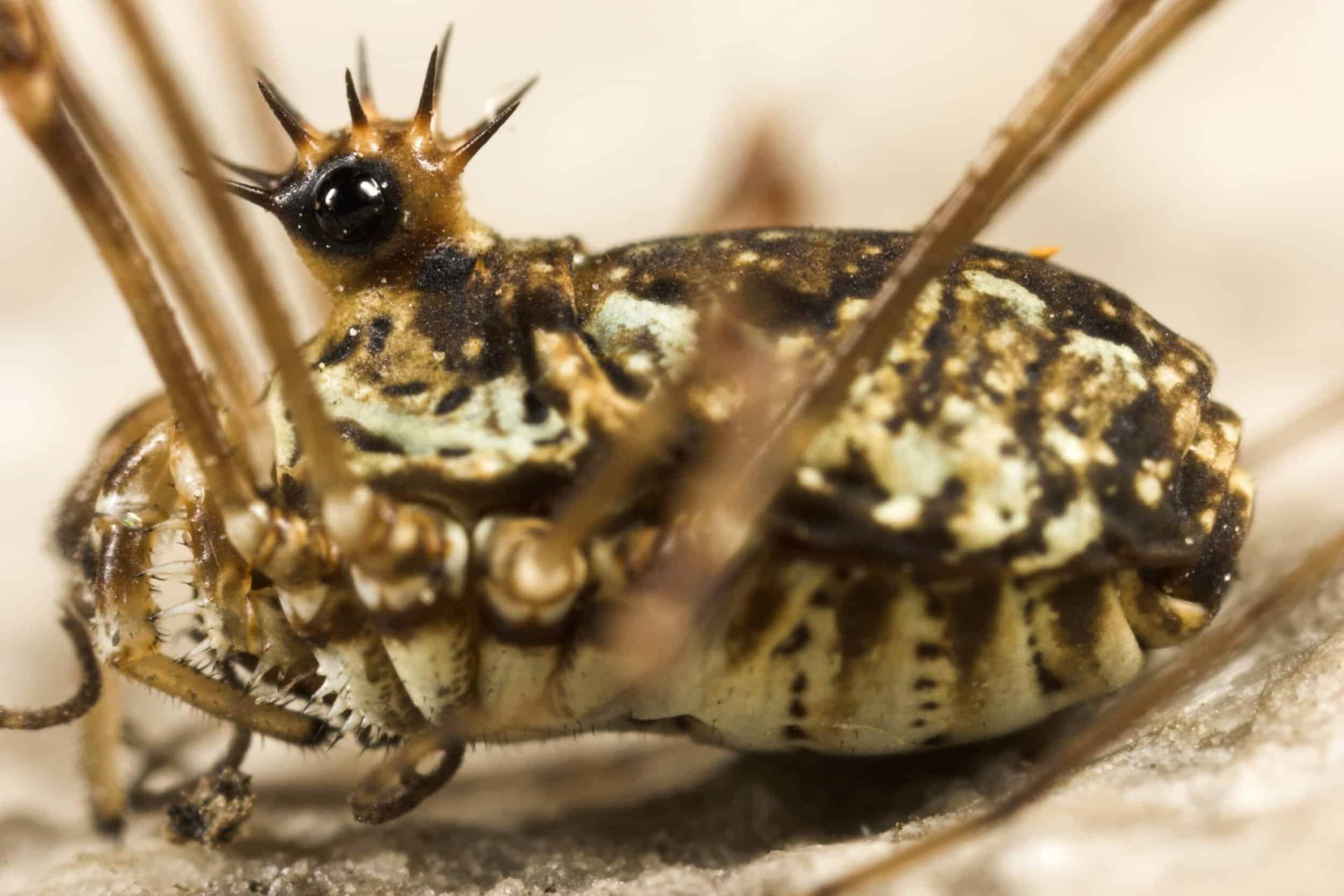
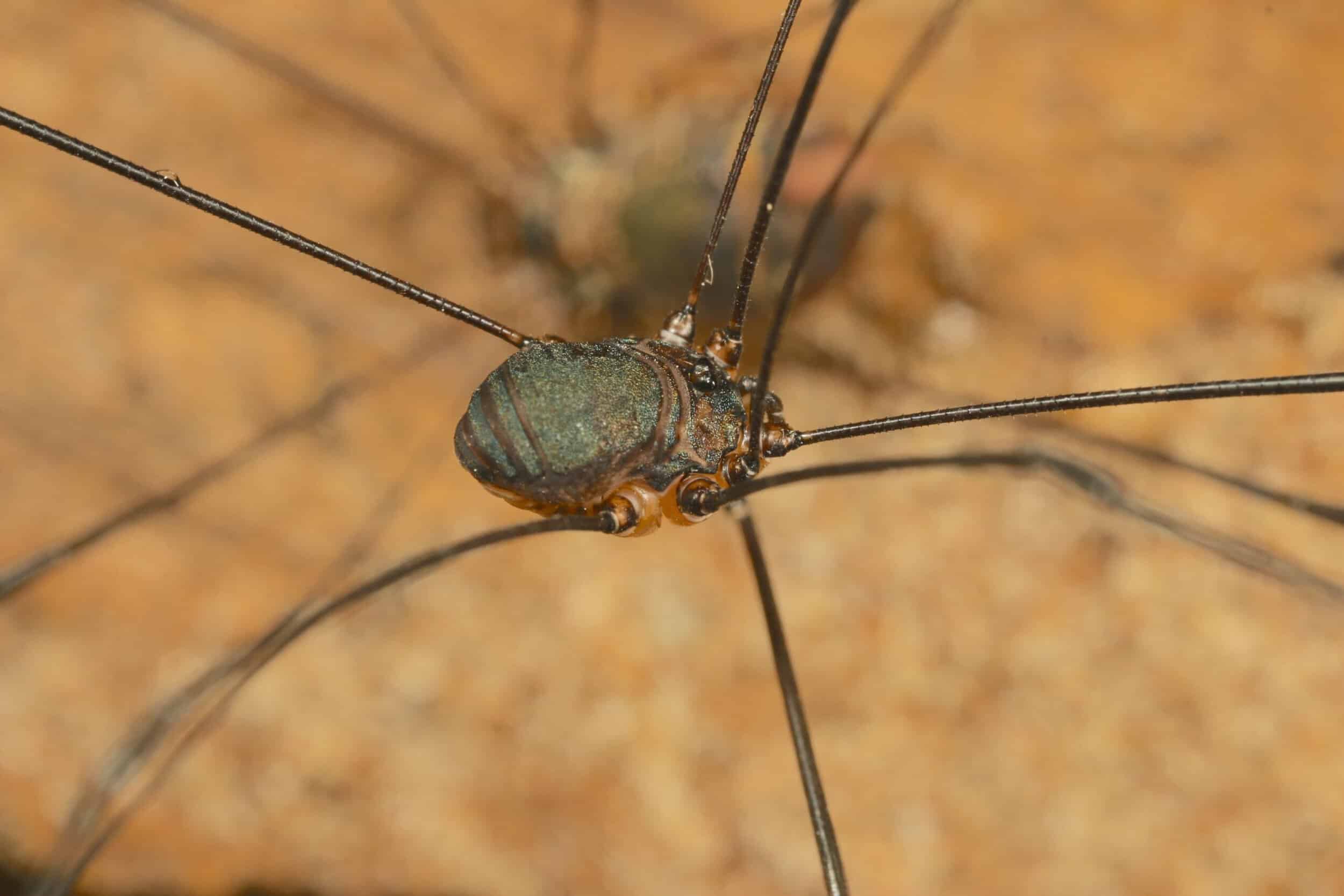
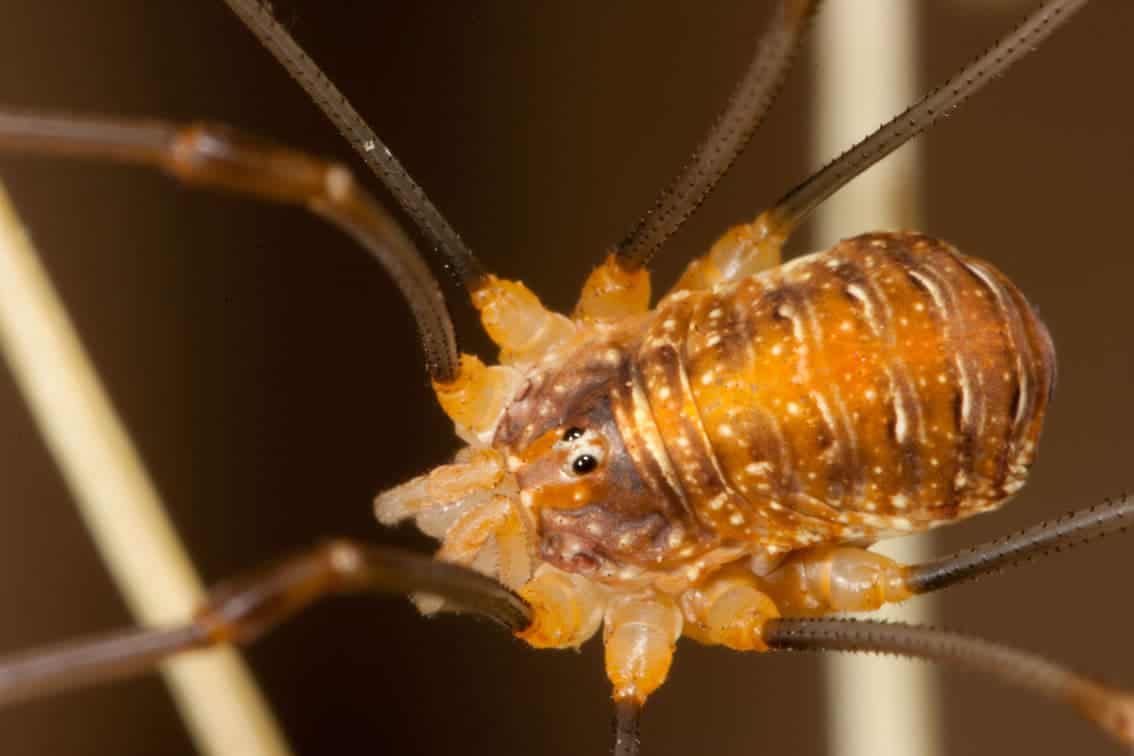
Read More
Harvestmen must be one of the most familiar and engaging invertebrates for the non-naturalist. They are often easily observed, sitting on walls and running among flower-beds in gardens, but very few people understand their predatory ecological role or quite how easy many species are to recognise in the field.
With only 33 British species to contend with, it is straightforward to learn how to identify a high proportion of British species from just a few characteristics. New species to Britain seem to be turning up almost annually in recent years, so it is an exciting time to be looking at these amazing creatures.
Through a combination of image-rich talks and field practice, this will be a good introduction to allow you to recognise a good proportion of the British species. You will also learn about the new species that are spreading rapidly across the country and may be in a garden near you, waiting to be discovered.
By the end of this course, you will:
- Understand the basic anatomy and lifestyle of British harvestmen
- Be familiar with the features diagnostic for their identification
- Have a better understanding of how to find and record these arachnids in the field
- Hopefully have experience of catching and identifying live specimens in the hand
Who Should Attend? – This course will be suitable for someone wanting to take a closer look at harvestmen for the first time or add some identification skills to an existing interest. Studying harvestmen is a good starting point for looking at other arachnids and insects.
Knowledge Level – Beginner. Level descriptors can be found on the following web-page: Framework and Course Level Descriptors
Prior Knowledge – No previous experience of identifying harvestmen is required.
PLEASE NOTE: There is no accommodation, refreshments, or meal facilities included in the course price. If we are unable to reach viable numbers for this course, we will inform you of the course cancellation 4-5 weeks prior to the course run. We would recommend when purchasing accommodation and/or travel you should take out your own insurance.
Bookings will close if course capacity is reached.
Please email [email protected] if you have any questions.
About the Tutor
Paul Richards
Paul Richards has nearly 40 years’ experience as a professional zoologist, curator and ecologist specialising in invertebrates. He currently works with a research team looking at Heliconius butterfly wing scale development and mimicry evolution at the University of Sheffield, where he has previously researched urban invertebrate diversity, ecosystem services and bird reproduction. In recent years he has undertaken commercial field ecology and worked for Sheffield & Rotherham Wildlife Trust as Ecological Monitoring Officer and helped to write the Sheffield State of Nature Report. For the 25 years prior to that he was Senior Curator of Natural History at Museums Sheffield.
Paul is Sorby Natural History Society recorder for Millipedes, Centipedes, Woodlice, Harvestmen, and Pseudoscorpions. His publications include the recently updated Field Studies Council guide to British Harvestmen and the new atlas of Dragonflies of the Sheffield area.
Example Timetable
Example Timetable
This timetable is subject to change but should give a clear outline of what to expect.
- Please arrive in time for the course to start promptly at 10:00
- The course will end at 17:00
10:00-10:15 General introduction
10:15 – 11:00 Introduction to Opiliones:
- Life history
- Habitats/Ecology
- Anatomy
11:00-11:15 Break - refreshments not provided
11:15 – 13:00 Identification:
- Recognising ‘easy’ species
- Recognising some trickier common species
13:00 – 14:00 Lunch - not provided
14:00 – 15:30 In the field:
- H&S briefing
- Field techniques
- Practice identification skills
15:30 – 16:15 Looking at some recently recorded, rarer species
16:15-16:45 Recording methods
16:45 -17:00 Summary and questions
Order and duration of each element will be flexible in order to take advantage of weather conditions and species present.
Please note accommodation, refreshments, and an evening meal are not included in the course price.
What's Included
The course has been carefully created by expert tutors and educators to help you build your knowledge and apply it within the field surrounded by like-minded individuals.
The course includes:
- Classroom learning covering the theory of the species
- Field excursions to apply new knowledge
- Expert tuition for which the Field Studies Council is renowned
- Clear objectives and progression
You can rest assured that the absolute best content from an expert in environmental education will be provided. In choosing a Field Studies Council course, you will be joining thousands of people who learn with us each year.
Bursaries and Subsidies
Student Discount
This course is eligible for a student discount. If you are a current student, please use discount code BioStudent20 at checkout for 20% off all Biodiversity courses.
Natural History Bursaries
There are a number of natural history bursaries available to help with the cost of your course. To find out if you and your chosen course are eligible, read more here.
Before You Attend
What to Bring
- Hand lens
- Clipboard
- Pen and paper
- Field Studies Council Harvestmen Guide
- Sweep net (with or without telescopic handle) would be useful to bring if you own one
- Lunch and refreshments
- Sensible footwear and clothing for being outdoors
There will be a member of staff with first aid training and access to a first aid kit on site. If you have special medical or access requirements, please let us know as soon as possible so we can plan the course.
Opportunities to attend this course
This course is not currently available to book. Dates will follow soon.
Sign up to our Email Newsletter
Progress Your Learning
This is a training course from the Field Studies Council, delivered by expert tutors with an approachable learning style. After attending this course, you may like to progress your learning with further relevant courses or branch out into other areas of natural history. The Field Studies Council offers both online and in person courses, so you can choose the learning style that suits you best.
The course gives you the opportunity to immerse yourself in a new subject and acquire novel skills. Our online portal gives you time to study at your own pace and fit the lessons around your own schedule.
If you have any questions about our courses please check our Frequently Asked Questions or email [email protected].
Group Bookings Made Easy
If you have a group of 10 or more individuals wanting to complete one of our courses, our team are available to discuss your options – from discounts to private team courses. Find out more!
You can rest assured that the absolute best content from an expert in environmental education will be at your fingertips. In choosing a Field Studies Council course, you will be joining thousands of people who learn with us each year.

